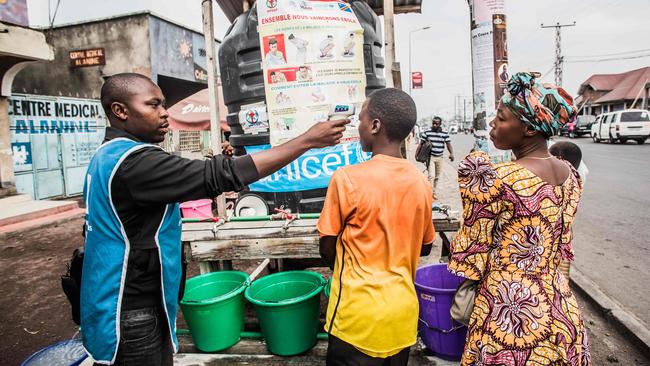Coronavirus: No country is safe until we all are

Poorer countries tend to have much weaker health systems, limited disease surveillance and fewer resources to handle major outbreaks of infectious disease. If health systems in Italy struggled to cope, what hope is there for poorer countries?
Little wonder then that the Prime Minister of Papua New Guinea immediately declared a state of emergency after its first confirmed case of COVID-19. In a country that last year had outbreaks of polio and measles, both highly preventable through vaccination, and where basic preventive measures such as self-isolation, social distancing and handwashing may often be less feasible, the potential for the coronavirus to spread across the population is huge.
And in poorer countries it is not just the immediate impact of COVID-19 we need to worry about, but also the very real threat of resurgences of other diseases as health systems struggle to cope and knock-on effects are felt on other critical health programs such as immunisation.
This is precisely what happened recently in the Democratic Republic of the Congo during the Ebola epidemic. Efforts to contain and end the outbreak, which now appear to have succeeded, have been overshadowed by the fact that about twice as many people died from a preventable measles outbreak as they did from Ebola.
There is also great uncertainty about how this pandemic will affect poor countries. So far this coronavirus has mainly killed older people, or those with pre-existing health conditions. But in poorer parts of the world, where there may be higher levels of health issues such as malnutrition, respiratory disease or HIV, the worry is that a broader demographic proportion of the population may be at risk. With health systems likely to be overwhelmed, the potential for loss of life is much higher.
All this points to an urgent need to bolster health systems in vulnerable countries. We need to ensure that their existing immunisation programs keep functioning, to prevent them having to battle more than one infectious disease at the same time. As well, a number of organisations, including Gavi, the Vaccine Alliance, of which I am board chairwoman, have made funds available to enable the world’s poorest countries to improve their disease surveillance activities and testing capabilities, as well as to train health workers and ensure they have the protective equipment they need to keep them safe. Such measures are essential if we want to minimise the number of deaths in these countries.
They will also be important if we ultimately want to end the pandemic, because without support these countries will almost certainly struggle to contain and stop the virus. There has been a lot of discussion about the potential of certain therapeutic drugs or treatments, such as passive immunity, where antibodies from people previously infected with COVID-19 are used to protect healthy people.
But even if any of these eventually do show merit, it is clear that prevention is better than cure. We need vaccination to end this pandemic. And once a vaccine or vaccines are available, it will be essential that we take steps to ensure people in these countries get equal access to it. Because demand for a COVID-19 vaccine is likely to be so high that, unless we plan ahead, there is a real risk it will end up in the hands of just a few countries. Not only will this be a great injustice, leaving the most vulnerable people unprotected, but it is a recipe for disaster that will enable the disease to continue to circulate globally well after we have a means of stopping it.
As a global community we have a duty to make the protection of the most vulnerable people our priority, to ensure we leave no one behind. We know countries will want to focus on their citizens first. This is natural and understandable. But they must also care about citizens from poorer countries. Until every country is safe, no country is safe in this interconnected world.
Ngozi Okonjo-Iweala, an economist who was Nigeria’s first female finance minister, chairs global vaccine alliance GAVI



So far, the greatest impact of the coronavirus pandemic has been felt in wealthy countries, China, South Korea and Italy, rather than the poorest parts of the world. But we must not fool ourselves into thinking it won’t come, and when it does it will be utterly devastating.